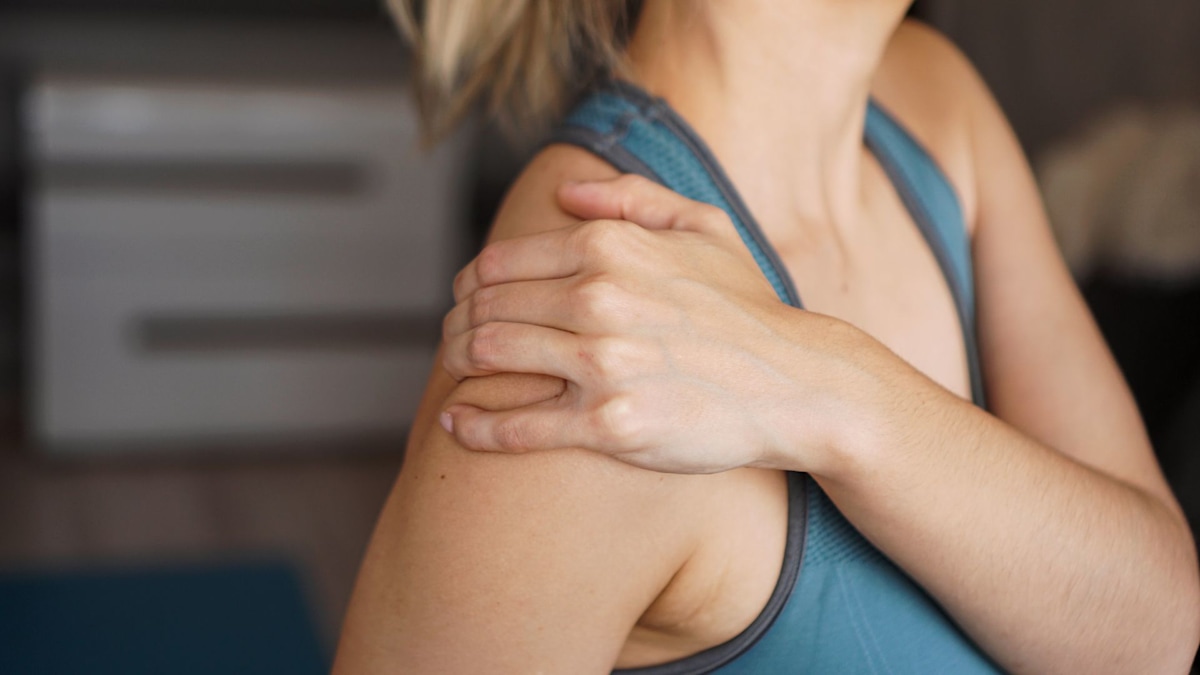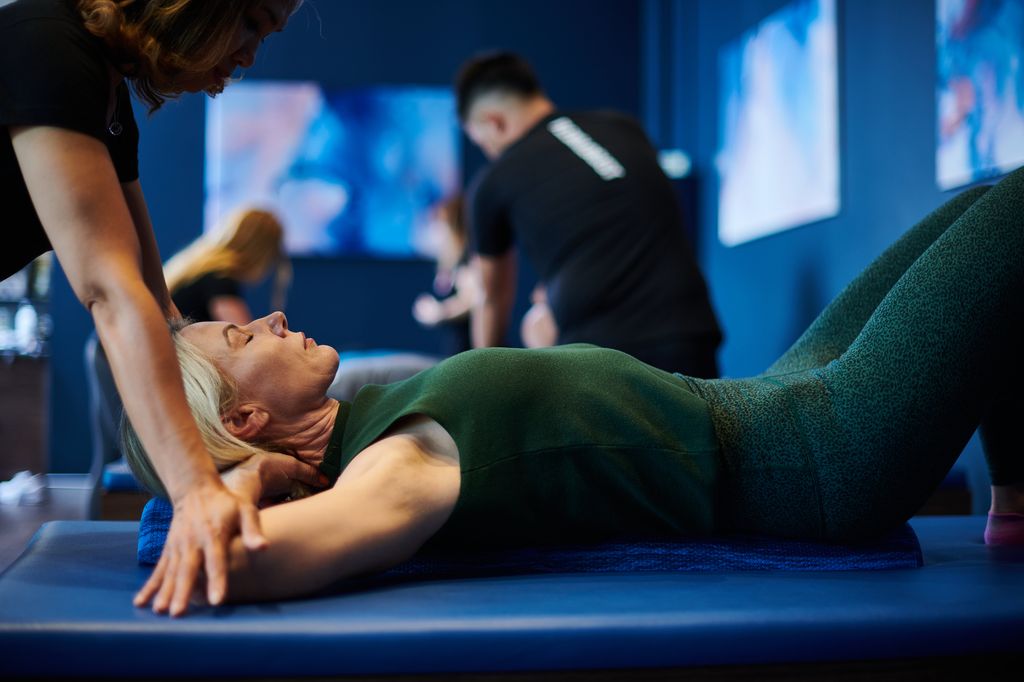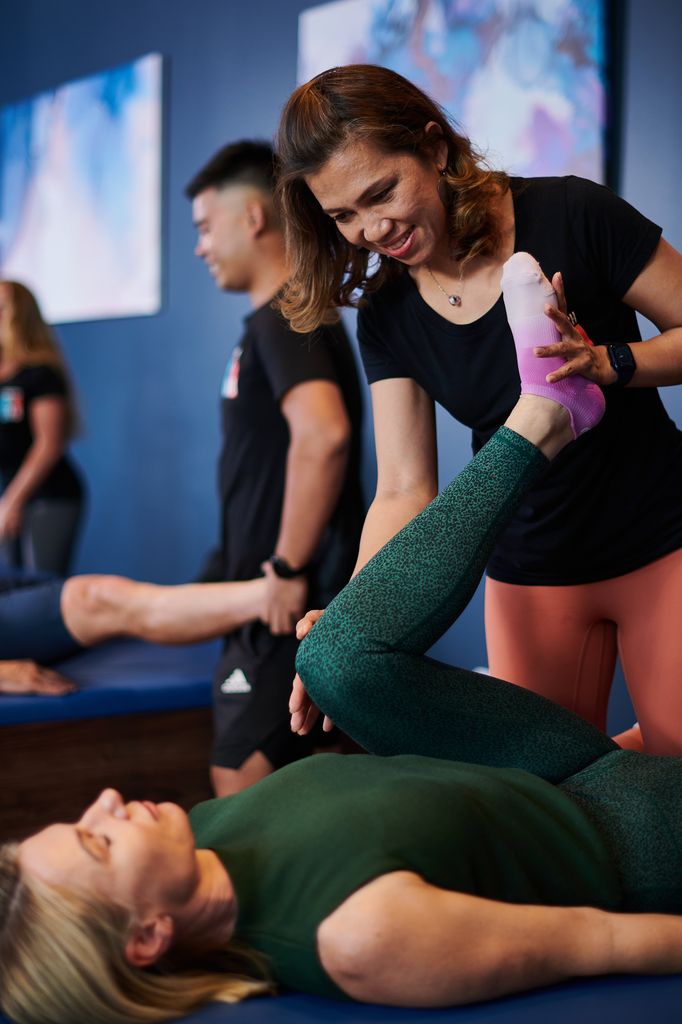As a nutritionist, I have always prided myself on maintaining a healthy lifestyle. My diet is balanced, my exercise routine is solid, and I take great care of my body. But when I hit my mid 40s and entered perimenopause, I started experiencing unexpected and excruciating joint pain. Despite my best efforts, there were mornings when my knees ached, my lower back felt stiff, and my shoulders screamed with tension. I was doing everything right—so why did I feel so wrong?
It turns out that joint pain is a common but often overlooked symptom of perimenopause. The drop in estrogen levels affects collagen production, leading to inflammation and stiffness. I was determined to find relief beyond just painkillers and heating pads, which is when I discovered StretchLab. Intrigued by the concept of assisted stretching, I decided to give it a try. Over the course of three sessions, I was astounded by the results.
My experience
From the moment I stepped into StretchLab, I felt at ease. The warm, inviting environment immediately put me in relaxation mode. Lead Flexologist, Claudia Zappino, welcomed me with a reassuring smile and explained the process, assuring me that my aches and pains were not just normal but manageable. She introduced me to PNF (Proprioceptive Neuromuscular Facilitation), a stretching technique that involves contracting and then relaxing a muscle while being gently assisted into a deeper stretch.
“This process tricks the nervous system into allowing a deeper stretch,” Claudia explained. “Assisted stretching, recommended at least once per week, helps women in menopause by improving joint mobility, reducing muscle stiffness, and increasing flexibility to counteract age-related tightness. It also enhances circulation, supports posture, and lowers cortisol levels, helping to manage stress and prevent injury.”
The transformation
During my first session, I felt immediate relief as my body was gently maneuvered into positions that released tension in my joints. My Flexologist guided me through each movement, ensuring I remained comfortable while reaching optimal stretches. It was a little intense at times, but in the best way possible—like my body was finally waking up after years of stiffness. By the second session, I noticed a significant improvement in my flexibility and a reduction in morning stiffness. By the third session, I was waking up with far less discomfort, and my overall mobility had improved remarkably.
“Our motto is Live Long, and we want people to Live Long Well!” Claudia told me. “All women who are going through or approaching menopause need to remember that menopause is a transition, not a limitation—stay flexible, stay strong.”
The benefits of stretching for perimenopause
Stretching, particularly assisted stretching, has a myriad of benefits, especially for women navigating menopause. Claudia elaborated:
“Stretching enhances flexibility and range of motion, reduces muscle tension and joint pain, reduces stress, improves posture, increases circulation, improves sports performance, helps prevent injuries, and supports overall mobility. Customized assisted stretching ensures deeper, more effective results than stretching alone. A relaxed, flexible body leads to a stronger, pain-free life.”
The aftercare perks
As if the stretching sessions weren’t rewarding enough, StretchLab also offered an indulgent aftercare routine. After each session, I was treated to a cup of warm ginger tea, which soothed my senses and made me feel instantly nurtured. I then relaxed with compression boots, which stimulated circulation in my legs, reducing any lingering soreness. Finally, I enjoyed an LED mask treatment, which not only felt luxurious but also helped to rejuvenate my skin—because let’s be honest, anything that makes us feel a little more radiant during this time of life is a win.
Incorporating stretching into my routine
After my experience at StretchLab, stretching has become a non-negotiable part of my self-care routine. Claudia advised that for the best results, I should aim to stretch daily, but at least two to three times per week is essential for maintaining flexibility.
“StretchLab’s assisted stretching once a week provides deeper, longer-lasting benefits than stretching on your own,” she recommended. “Consistency is the key to a body that moves with ease and ages well.”
Stretching vs. other treatments
Before discovering StretchLab, I had explored other methods to relieve my joint pain, including massage and chiropractic care. While they certainly have their benefits, Claudia clarified the distinctions:
“Stretching actively lengthens muscles and improves mobility, while massage relieves tension and chiropractic care realigns the spine and joints. StretchLab’s assisted stretching goes beyond relaxation—it increases flexibility, reduces stiffness, and helps prevent future pain. Stretch for movement, massage for relief, chiro for alignment—each plays a role in keeping you at your best.”
The verdict
Perimenopause may have thrown unexpected hurdles my way, but StretchLab has provided me with a powerful tool to regain control over my body. The difference in my joint pain, flexibility, and overall well-being has been extraordinary. If you, like me, are struggling with perimenopausal aches and pains, I highly recommend giving assisted stretching a try. It’s not just about relieving pain—it’s about reclaiming movement, strength, and confidence in your body.
I left StretchLab feeling taller, looser, and more in tune with my body than I had in years. Menopause may be a transition, but thanks to stretching, I know it doesn’t have to be a limitation.
Read the full article here


 Trending:
Trending:










